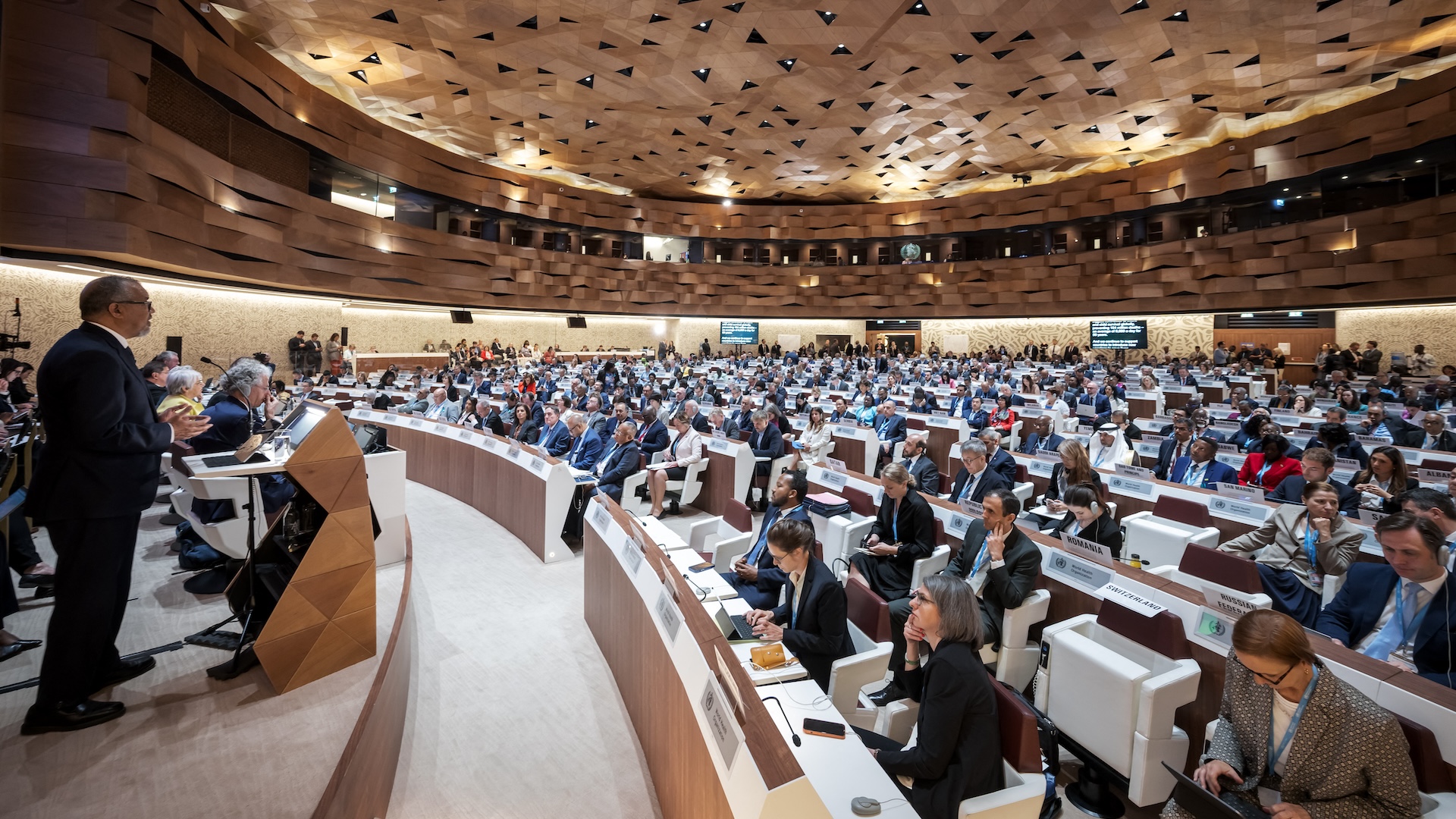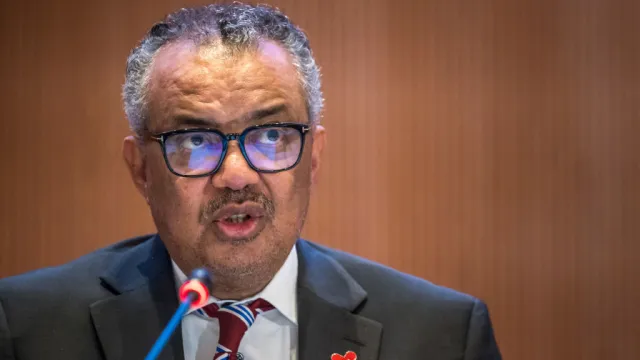Nicole Hassoun | Source | Professor of Philosophy at Binghamton University, State University of New York

Nicole Hassoun
Nicole Hassoun, professor of philosophy and co-director of the Institute of Justice and Well-Being, has been interviewed by outlets ranging from the BBC to The Christian Science Monitor, discussing several topics related to COVID-19. From virus implementation to a wide array of global and ethical issues surrounding COVID-19, Hassoun is well equipped to weigh-in on a variety of topics. Hassoun’s research interests include social and political philosophy, global health and ethics, including The Global Health Impact Index developed by faculty at Binghamton University, to rank pharmaceutical companies based on their drugs’ impact on global health. In 2019, they launched a new, more-robust model that addresses even more diseases worldwide.
-

Binghamton University, State University of New York
Professor of Philosophy
-
The WHO penned the world's first pandemic agreement — but the US isn't signing
The U.S. withdrew from treaty negotiations on President Trump's first day in office.
Article -
Why the world needs a strong WHO — and an international pandemic agreement
Senate Republicans have promised to reject a much-anticipated international pandemic agreement from the World Health Organization — an agreement among WHO members that would establish a road map, and legally binding policies, for the world’s nations to collectively and efficiently respond to the next global pandemic.
Article -
MAHA: Os erros e acertos do relatório de saúde do governo Trump
De ultraprocessados a vacinas, documento destaca questões importantes, mas influência ideológica prejudica avaliação e decisões baseadas em estudos
Article
-
Vaccine nationalism is neither ethically justified, nor even in rich countries’ long term self-interest. No one deserves the luck of their birth and few have much control over their country of residence. So when there are four ventilators per 12 million people in some developing countries, and people are being buried in cardboard boxes in mass graves, it is simply unconscionable to argue that wealthy countries can keep their vaccines to themselves or even help their populations first. Vaccine nationalism fails to respect basic human rights and the people that have them. National leaders make promises and undertake commitments to protect their own, but they can’t always prioritize their own citizens. Consider an analogy – suppose a CEO is morally bound to advance the interests of stakeholders but learns that her company is profiting from polluting the Amazon. Is it acceptable for her to continue to allow her company to do so? Clearly not. Similarly, if her company could help avert a genocide or otherwise save many lives at some cost to shareholders, she might be morally bound to do so. The COVID pandemic may continue to circle the globe for much longer (or indefinitely) if we do not fight it where the worst outbreaks are occurring. And herd immunity in rich countries is by no means guaranteed. Helping establish basic health infrastructure internationally (to not only vaccinate against COVID but a host of vaccine-preventable diseases) could greatly lower the global burden of disease.
-
An estimated 3 billion people in low-income countries across Africa, Asia and Latin America are likely to lack access to a COVID-19 vaccine for years after it becomes available. In poor nations, many communities lack the health care workers needed to administer vaccines, as well as the capacity to handle vaccines properly by keeping them extremely cold.
-
‘Immunity passports’ for COVID-19 must be distributed equitably Proof of vaccination against COVID-19 i.e. “immunity passports” promise a way to return to a more normal social and economic life, but the benefits they generate will be dispersed unequally, and it is not obvious that they are ethical. On the one hand, immunity passports offer an opportunity for employees to go back to work and families to reunite. On the other hand, they will not be available to everyone, and they will exacerbate existing inequalities. These must include health and welfare exemptions so that people who cannot access vaccines for health reasons but need to work, attend school, travel and so forth can do so when the expected benefits exceed expected costs. If prospective travelers, or their family members, have serious economic, health or other needs, they should be able to secure a limited passport to access essential services—whether that requires going to work, traveling or attending school as long as they agree to take appropriate precautions (e.g., get tested, wear a mask, and social distance insofar as possible).



